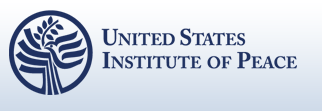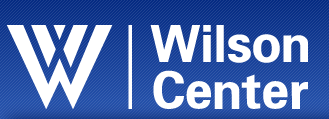MENA News Guide: Think Tanks
/By Melissa Martin
As a page turns in the history of the Middle East, the region is ushering in a period of critical decision-making and policy formation. These are hardly made on a whim, but crafted from an abundance of research, analysis and strategy recommendations. Think tanks play an invaluable role in policy development, and thus tracking their reports and programs can provide a glimpse into present and future tactical decisions.
Below is a sample of influential think tanks in the U.S. and abroad that focus on Middle East research.
Think there are others worth mentioning? Leave it in the comments.
The Washington Institute for Near East Policy
The Washington Institute is a prominent D.C.-based institute aiming to "advance a balanced and realistic understanding of American interests in the Middle East and to promote the policies that secure them." While the institute is criticized for having a Zionist agenda (the institution has financial ties to Israel), it has also been praised as a leading entity in MENA analysis. The Institute also has a highly accomplished board of directors, with several former secretaries of state and cabinet heads.
Website: http://www.washingtoninstitute.org
Facebook: https://www.facebook.com/WashingtonInstitute
Twitter: @washinstitute
The Carnegie Middle East Center (Lebanon)
The Middle East Center of the Carnegie Endowment for International Peace – headquartered in Beirut – is a public policy research institute concerned with political and economic stability in the Middle East. It focuses on Arab politics, education reform, Middle East economics, regional relations and security sector reforms in the region. A 2012 report from the University of Pennsylvania ranked the Center number one on a list of top think tank in the MENA.
Website: http://www.carnegie-mec.org
Facebook: https://www.facebook.com/carnegiemec
Twitter: @CarnegieEndow
United States Institute of Peace
Established by an act of Congress under President Reagan, the USIP aims to serve the people and the government of the United States through a wide range of education and training, basic and applied research opportunities, and peace information services on the means to promote international peace and conflict resolution. It is federally financed, and currently focuses its resources primarily on the MENA countries of Afghanistan, Egypt, Iran, Pakistan, Israel-Palestine, and Lebanon.
Website: http://www.usip.org
Facebook: https://www.facebook.com/usinstituteofpeace
Twitter: @USIP
RAND Corporation
RAND is a nonprofit institute which aims to improve policy and decision making through research and analysis. The corporation covers a wide variety of research areas, including international affairs, national security, and terrorism and homeland security. The RAND-Qatar Policy Institute in particular focuses on the Middle East region, also covering a broad range of topics including science and technology, healthcare, and education. The institution is partially funded by the U.S. government, as well as by private endowments.
Website: http://www.rand.org
Facebook: https://www.facebook.com/RANDCorporation
Twitter: @RANDCorporation
The Woodrow Wilson International Center for Scholars
This institute was established as a division of the Smithsonian Institute in 1968. Like the RAND Corporation, the Wilson Center covers a very broad range of issues. Its coverage of the MENA includes news, blogs, publications, multimedia, and numerous events. It is also funded partially by the U.S. government, as well as by private funding sources. It is viewed as a relatively non-partisan think tank on the bias spectrum.
Website: http://www.wilsoncenter.org
Facebook: https://www.facebook.com/woodrowwilsoncenter
Twitter: @TheWilsonCenter
Brookings Institution (USA)
Brookings is one of the oldest think tanks in America, and is consistently ranked a top three global policy institution. Their research on the Middle East and North Africa is focused on issues of nuclear proliferation, democratization, security, and development. The institute tends to be described as liberal-centrist or centrist, and it’s financial backers include Ford Foundation, The Pew Charitable Trusts and (to a lesser extent) U.S. Senator Dianne Feinstein.
Website: http://www.brookings.edu/research/topics/middle-east-and-north-africa
Facebook: https://www.facebook.com/brookings
Twitter: @BrookingsFP
Transparency International (Germany)
This organization aims to stop corruption and promote transparency, accountability and integrity It publishes the Corruption Perceptions Index annually, which presents a comparative listing of global corruption. The Transparency International website provides an interactive map from which site-goers can track corruption by country in the Middle East. It has become one of the most esteemed anti-corruption groups in the global arena.
Website: http://transparency.org
Facebook: https://www.facebook.com/TransparencyInternational
Twitter: @anticorruption
Peterson Institute for International Economics (USA)
Considered the top think tank in international economics research and analysis, the Peterson Institute attempts to project emerging issues and present strategic concepts to counter them. It utilizes several publication mediums, including briefs, working papers, congressional testimony, speeches, and news releases. A current priority for the organization includes the economic dimensions of the Arab Spring.
Website: www.iie.com
Facebook: https://www.facebook.com/PIIEonline
Twitter: @PIIE_com
Gulf Research Center (Saudi Arabia)
The GRC was founded in 2000 by a Saudi businessman. It focuses on economics, energy, politics, international relations, defense and security, environment, and science/technology with respect to the Gulf states. Their four main sectors include social science research, education, news media, and consultancy. The institution has been involved in many high-profile conferences, work-shops and seminars involving the Gulf states.
Website: http://grc.net/
Facebook (Arabic): https://www.facebook.com/gulfresearchcenter
Twitter: @Gulf_Research
Begin Sadat Center for Strategic Studies (Israel)
According to the institute's website, the Begin Sadat Center for Strategic Studies (BESA) advances a realist, conservative, and Zionist agenda in the search for security and peace for Israel. The center is a located within Bar-Ilan University and is notable for its academic emphasis on conflict and security studies in Israel and the Middle East. It's policy recommendations are directed at senior Israeli decision-makers in military and civilian life, the academic community, leaders of Jewish communities, and the educated public.
Website: http://besacenter.org/
Facebook: https://www.facebook.com/BESA.Center
Atlantic Council's Rafik Hariri Center for the Middle East
The Hariri Center for the Middle East offers policy recommendations for the U.S. and Europe with intent to foster closer and more productive relations with the Arab world and to promote successful democratic transitions. The Center specifically focuses on countries currently in transition, integrating spheres of analysis, and promoting US-EU collaboration in the region. In addition to its publications, the Center maintains a blog online called "Egypt Source" which attempts to track and analyze events in post-Mubarak Egypt.
Website: http://www.acus.org/program/hariri-middle-east-center
Egypt Source: http://www.acus.org/egyptsource/
Twitter: @ACmiddleeast







